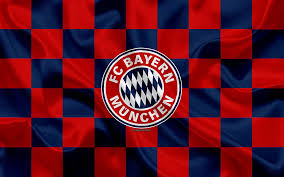
Munich FC
The story of Munich FC is one steeped in passion, triumph, and a rich cultural heritage. As one of the most recognized football clubs in Germany and arguably the world, Munich FC has carved out its niche in the annals of sports history. This blog post delves into the chronological journey of this illustrious club, exploring its roots, significant achievements, and the socio-political factors that influenced its growth over the years.
Origins and Foundation of Munich FC
The origins of Munich FC trace back to the late 19th century when football was rapidly gaining popularity across Europe. The foundation laid during these early years would go on to shape the club’s identity and future success https://j88t3.com/.
The Birth of Football in Bavaria
Football reached Bavaria in the mid-1800s, primarily through British expatriates who introduced the game to local communities.
This burgeoning interest led to the formation of various clubs, but it was in 1900 that the idea for Munich FC truly took form. In the wake of increasing participation, a group of passionate individuals sought to create a dedicated football club that would represent the city of Munich.
The energy surrounding this endeavor cannot be overstated; it was a time when communities rallied around sports as a means of camaraderie and competition. This grassroots movement set the stage for what would become an iconic institution in German football.
The Official Establishment in 1900
On February 27, 1900, Munich FC was officially founded. Known originally as “FC Bayern München,” the club began its journey with humble aspirations, mostly competing at a regional level. During these formative years, the club struggled to find its footing amidst the competitive landscape of Bavarian football.
Despite these challenges, the fervor among players and supporters never waned. The enthusiasm of fans, combined with the club’s commitment to cultivating local talent, provided a solid foundation from which Munich FC would grow.
Early Years and Initial Struggles
As a new entity in the realm of Bavarian football, Munich FC faced multiple hurdles. The club was often overshadowed by more established teams in the region, making victories hard to come by.
However, it was during this challenging phase that the seeds of resilience were sown. Players and management alike learned valuable lessons about teamwork, strategy, and overcoming adversity. These experiences would lay the groundwork for future successes and help forge a formidable identity for the club.
Rise to Prominence: The 1920s and 1930s
With the dawn of the 1920s, Munich FC began to emerge from the shadows of lesser-known teams. This pivotal decade marked the start of a transformative journey towards prominence in German football.
Gaining Recognition in Regional Tournaments
The 1920s were characterized by a series of strong performances in regional competitions. As the club began to attract talented players, it steadily climbed the ranks in Bavarian leagues.
This newfound recognition brought along increased fan support and financial backing, enabling Munich FC to invest in better facilities and training regimes. Fans poured into stadiums to witness their team’s matches, creating an electric atmosphere that fueled the players’ determination.
The Shift to National Competitions
By the late 1920s, Munich FC had amassed enough prowess to compete on a national level. The club entered the newly established Gauliga system, which consolidated football leagues throughout Germany.
This transition marked a significant turning point for the club. Not only did they face tougher opponents, but they also showcased their abilities on a broader platform. Winning crucial matches against larger teams helped cement Munich FC’s reputation across the nation.
The Challenges of the Era
While the rise to prominence was exhilarating, it wasn’t without its challenges. The political instability of the Weimar Republic had a profound impact on all sectors of society, including sports.
Munich FC, like many clubs, had to navigate the turbulent waters of changing political landscapes. Amidst growing tensions and eventual turmoil leading up to World War II, football became a source of unity, allowing fans to momentarily escape the harsh realities of life.





